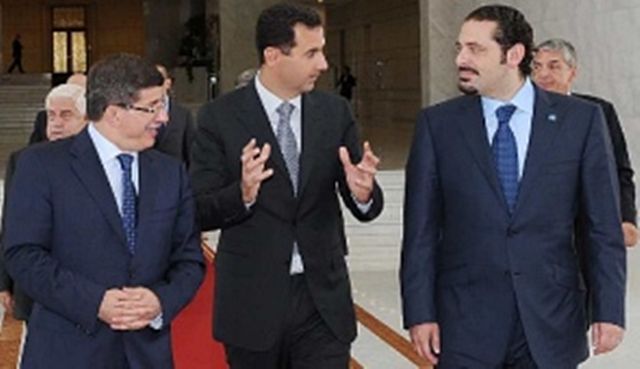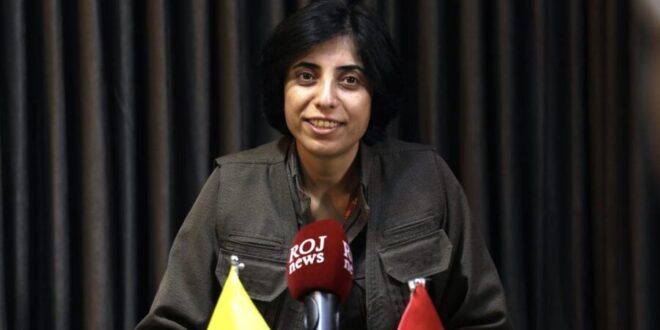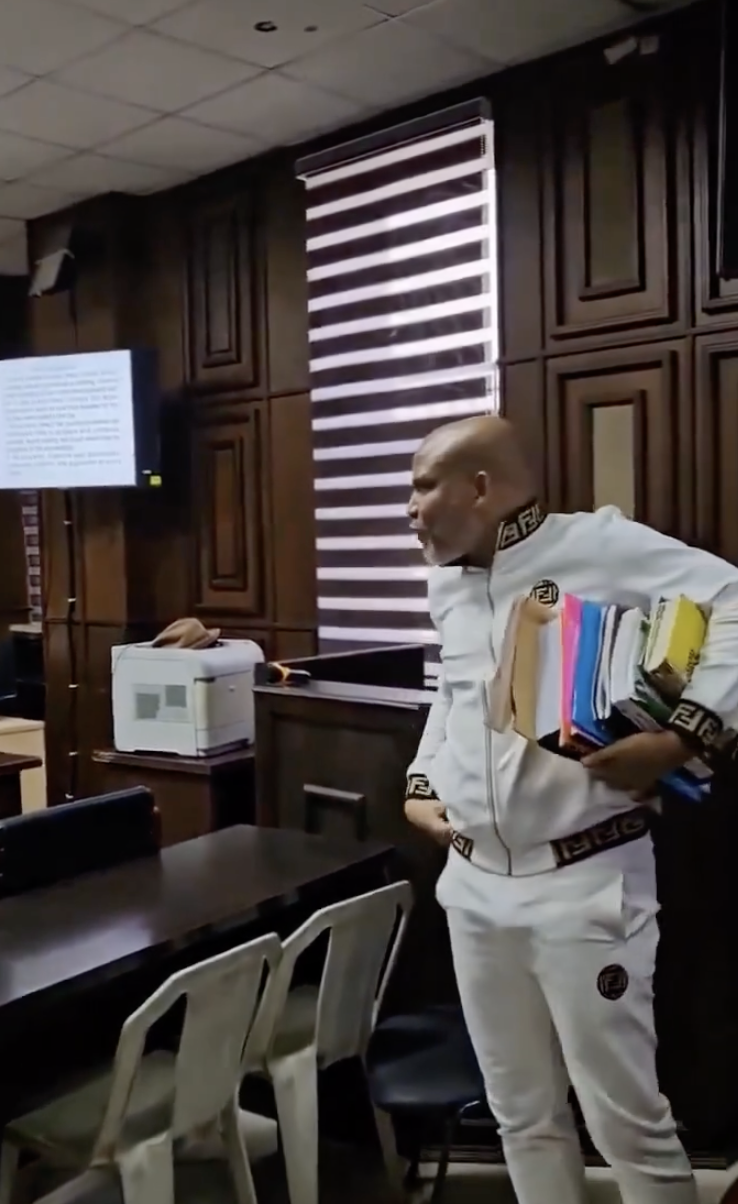
How Kurdish PKK Militants Are Exploiting the Crisis in Syria to Achieve Regional Autonomy
How Kurdish PKK Militants Are Exploiting the Crisis in Syria to Achieve Regional Autonomy
Turkish-Syrian relations have been always problematic. Dating back to the Cold War, Syria’s support for the Kurdish militants of the Partiya Karkeren Kurdistan (PKK) was a major obstacle to efforts to normalize relations between the two countries until the 1998 Adana Accord allowed Syria and Turkey to put the past behind them and become major economic and strategic partners. The Adana agreement established joint cooperation against the PKK and relations subsequently flourished in all aspects. In 2009, the two countries signed a joint political declaration establishing a High Level Strategic Cooperation Council (HLSCC), intended to elevate relations to an even higher level (mfa.gov.tr, accessed on March 16, 2012).
With the arrival of the Arab Spring, these relations began a downward slide as the Assad regime initiated an intensive crackdown on Syrian opposition groups. In response Turkey sent its special envoy, Ahmet Davitoglu, to Damascus to help speed up the reform process. Instead of hastening this process and maintaining good relations with Turkey, Assad developed even closer ties to Iran and launched a heavy-handed assault on the Syrian opposition. Turkey’s Recep Tayyip Erdogan become the first prime minister to call for Assad to step down, which completely soured Turkish-Syrian relations for the first time in 12 years (Hurriyet, November 22, 2011),
The PKK’s Policies towards Syria
Instability in Syria has rapidly altered the regional geopolitics of the PKK. Syria’s Alawite regime initially hoped that the PKK would keep the Kurdish region calm, enabling the regime to turn its attention exclusively to the Sunni Arab opposition without a repeat of the Kurdish unrest of 2004 and 2005 in the Syrian district of al-Qamishli. Talks between the regime and the opposition failed and President Assad began seeking an authority to keep the Kurds under control. [1] Under these circumstances the PKK emerged as a viable option.
The movement was well known to the Syrian regime, which provided a home to the PKK from 1980 to 1998. The founder of the organization, Abdullah Ocalan, lived in Damascus for 18 years. The PKK thus considered Syria a friendly country even while ignoring the heavy pressure being applied to Syria’s Kurds by the Assad regime. However, the PKK changed its Syrian policy after Abdullah Ocalan was expelled from Syria in 1998. By 2003, the PKK had founded a Syrian sub-group known as the Partiya Yekitiya Demokrat (Democratic Union Party – PYD), which became one of the most vocal critics of the Assad regime.
After the PKK and the Syrian regime brokered a deal in 2011, Assad allowed PYD leader Muhammad Salih Muslim to return to Syria from exile. Assad also allowed the establishment of six Kurdish schools funded by a PKK affiliate where the Kurdish language is taught and the Kurdish flag flown (CNNTurk, November 9, 2011; Sabah, November 29, 2011).
While Assad plans to use the PYD to temper the Kurdish opposition and provide opposition to Turkey, the PKK hopes that Syria will provide new opportunities for the movement, hopes that are apparently being fulfilled as the PYD runs the Kurdish region of Syria and PKK militants provide security.
Assassins at Work
After strengthening its presence in Syria the PKK began to eliminate Kurdish leaders who might pose a threat to the Assad regime or competition to the PKK. Local Kurdish leader Mashaal Tammo, assassinated by unknown gunmen in 2011, may have been a victim of this campaign, though PKK official have suggested Turkey is responsible (Kurdish Globe [Erbil], October 26).
Tammo was one of the founders of the Kurdish Future Movement after the 2004 Qamishli riot. Soon after its foundation, Tammo’s movement faced political competition from the PYD, which has its own take on Tammo’s murder. The PYD claim that Turkey is behind the assassination of the Kurdish leader and refers to the murder as a message from Ankara to Damascus that Turkey is more than capable of spreading chaos in Syria. This allegation presumes that Turkey calculated the Kurdish outcry against the Syrian regime. Arab members of the Syrian opposition suggested that the PKK may have killed Tammo, perhaps on behalf of the regime. This claim is fuelled by rumors that the PKK is under the direction of the Syrian military intelligence and is able to play the “Kurdish card” in its “cold war” with Ankara.
Abdullah Bedro, the strongest tribal leader in the Kurdish region of Syria, was another victim of assassination. The PKK denied its involvement in the crime, but when a PKK leader’s body was discovered at the scene of the clash in which Bedro was killed, the PKK had to admit its involvement in the assassination (Zaman, February 15). The PKK was further accused in the killing of Dr. Serzad Hac Resid, another anti-Assad politician and an Aleppo-based representative of the Syrian Kurdish Democratic Union Party (PYDKS). Dr. Resid was involved in distributing video footage concerning the brutality of the Assad regime (Zaman, February 17).
Reports in the Turkish press claim the PKK has opened a new training camp in the Syrian town of Resulyan across the border from Turkey’s Urfa Province and deployed 150 PKK militants there in November (Milliyet, November 24, 2011). Kurdish politician Kemal Burkay claimed that 2000 PKK militants were deployed in Syria to help the Assad regime, while Turkish TV stations broadcast video footage of PKK checkpoints in the Afrin District of Syria (Radikal, January 18; Beyaz TV, February 17).
Iran’s Realignment with the PKK
On August 13 last year a Turkish state owned TV station claimed that the head of the PKK, Murat Karayilan, had been arrested in Iran (trt.net.tr, August 13, 2011). According to news reports, Turkish intelligence shared Karayilan’s location with Iranian authorities and Iran then arrested Karayilan. However, there was a conflicting response from the Turkish and Iranian authorities – some authenticated the news while others denied it, creating an air of uncertainty over his whereabouts (trt.net.tr, August 13, 2011; see Terrorism Monitor Briefs, October 21, 2011). Following this flurry of reports, officials from both sides publicly denied the news seemingly in an effort to let the news die down.
In October, 2011 a headline story at the Turkish pro-government newspaper Yeni Safak provided new details of the case. Journalist Abdulkadir Selvi, who is believed to be a semi-official voice of the Adalet ve Kalkınma Partisi (AKP) government and maintains close relations with Turkish intelligence, shared specific details about how Karayilan was arrested. According to Selvi, in the summer of 2011, Iran launched a series of counterterrorism operations against the Partiya Jiyana Azad a Kurdistane (PJAK – Party of Free Life of Iranian Kurdistan), an offshoot of the PKK. During those operations Iran offered to conduct joint military operations with Turkey against the PKK and PJAK while Turkey agreed to share intelligence with Iran in its fight against PJAK. Selvi claims that Deputy Prime Minister Besir Atalay, the coordinator minister for counterterrorism operations, confirmed this (Yeni Safak, October 11, 2011).
Based on an intelligence sharing agreement between Turkey and Iran, the Milli İstihbarat Teskilatı (MIT – Turkish intelligence) shared Karayilan’s location with Iran and they arrested Karayilan and a few other PKK leaders and took them to Iran. While Turkey was expecting Iran to hand Karayilan and other PKK leaders over to Turkey, Iran offered to free them in exchange for a ceasefire and the withdrawal of PJAK units from Iran. In addition, Selvi claims “Iran asked Karayilan to provide opportunities for the Syrian fractions within the PKK and maintain the PKK’s support in Syria to balance the Kurdish opposition groups against the Assad regime during the political turmoil in Syria” (Yeni Safak, October 11, 2011).
According to an Iranian professor of international relations who requested anonymity:
The Iranian press gave extensive coverage to the arrest of Murat Karyilan. However, the coverage of this news disappeared after two days from its initial coverage. I inquired about the veracity of Karayilan’s arrest, and I was told by highly reliable and connected Iranian sources that Karayilan was indeed arrested, but he was released as a quid-pro-quo for the PKK pressuring PJAK and controlling the latter’s terrorist operations against Iran. When the Turks found out about Karayilan’s release, they expressed their utter dismay at the Iranian move. It should also be noted that some elements (especially the Foreign Ministry) of the Iranian government objected to the release of Karayilan, but they ultimately lost the battle. [2]
On September 4, Murat Karayilan sent a pre-recorded videotape to the pro-PKK Roj TV showing that he was not arrested and was still a commander in the PKK (Aktifhaber.com, September 4, 2011). At the same time Karayilan appeared on TV, PJAK declared a unilateral ceasefire. Iran asked the Kurdistan Regional Government (KRG) of northern Iraq for further details about PJAK’s ceasefire and in a short period of time a joint ceasefire agreement was brokered by former KRG prime minister Nechirvan Barzani (ekurd.net, September 7, 2011; rudaw.net, September 28, 2011). PJAK withdrew its militants from Iran and linked up with the PKK to fight against Turkey.
Shortly after PJAK’s ceasefire with Iran, Turkish counterterrorism operations reported many citizen of Iranian origin among those PKK militants who were killed in October and November 2011. In one such operation in the town of Cukurca in Hakkari Province six Iranian PKK militants were killed on October 28 (aktifhaber.com, December 18, 2011). There also were reports of an increase in militants of Iranian origin fighting in PKK units operating inside Turkey, an important sign that PJAK militants may have transferred to the PKK (Bugun, October 4, 2011).
Another critical development that occurred after PJAK’s withdrawal from Iran was the increased role of Bahoz Erdal in organizing PKK attacks. Erdal, who is of Syrian origin, was the top commander of the PKK until July 2009, when Murat Karayilan removed him from his post and appointed another Syrian PKK militant, Sofi Nurettin, in his place (Hurriyet, July 8, 2009). It was quite unusual for Bahoz Erdal to stage a comeback in 2011 after having been dismissed from his post. Indeed, the Turkish press suggested that Bahoz Erdal’s order to create chaos in Turkey did not fit with the general strategy of the PKK. It was believed that his unexpected comeback as a commander might be tied to his relations with outside forces such as Iran and Syria (Aksiyon, October 25, 2011).
Right after Murat Karayilan’s bizarre disappearance, or one might say his arrest and release by the Iranians, an interesting analysis of the situation appeared by Yusuf Ziyad, a PKK media official. It sparked rumors of a possible Kurd-Shiite axis, arguing that the changing geopolitical situation in the region had opened a vast area of operations for the PKK:
As Turkey reached an agreement with the U.S. to install NATO’s radar units in Turkey, Iran failed to drag Turkey out of the West. It further isolated Iran in the region. Turkey’s decision to support American plans in the Middle East have deeply disturbed Iran. Because there is no neighboring state for Iran to build an alliance with, Iran will build alliances with non-state actors. It is a well-known fact that Iran has had alliances with Hezbollah, Ansar al-Sunnah, Hamas, etc. The AKP government has pulled Hamas away from Iran’s influence. As an outcome of an arrangement between Turkey and Hamas, the organization shut down its offices in Damascus. At this stage, the best option for Iran is to build a Shiite and Kurdish alliance. As we look at the interests of both the Kurds and the Shiites there is ground to build such an alliance. Turkey’s moderate Islamic model is a direct challenge to the Iranian model of Islam. Promoting the Turkish model of Islam across the Arab world is an American project (Firatnews.com, September 19, 2011, likolin.ogr, September 19, Today’s Zaman, October 5, 2011).
Turkey’s Response
As the PKK appears to deepen its roots in Syria, Turkish authorities have given conflicting signals about the role of the Syrian government in supporting the PKK. Turkish Foreign Minister Ahmet Davutolgu stated: “It is beyond Syria’s power to use the PKK card. Syria is a country that cannot even control the Zabadani region [in the Rif Dimashq Governorate, close to the Lebanon border], but considers using a terror organization as a political card. We don’t allow Syria to consider using terror as political card ” (NTV, February 8). Recently Davutoglu added that “Assad denies the PKK network is in Syria, and of course he would say this, but we have information that the PKK network exists in Syria…” (Stargazete.com, March 2).
Conclusion
It appears that the PKK’s strategy toward Syria does not call for fighting beside the Assad regime until the very end. Rather, it has used the situation to its own advantage to open new avenues for itself and strengthen its position within Syria in order to be ready for further confrontations if the Assad regime falls. In recent weeks it seems that the PKK could be deserting Assad and trying to impose its own policies in Syria. For this purpose the PYD prepared a few weeks ago to declare “democratic autonomy” within Syria (yuksekovahaber.com, March 4).
PKK deputy chairman Mustafa Karasu and Amed Dicle, the head of the pro-PKK Roj TV, have written several pieces on Syria, claiming that the policy of Turkey’s AKP government towards Damascus had collapsed because the Kurds had declared “democratic autonomy” and that the Kurds would defend their right to this status (yeniozgurpolitika.org, February 28; Firat News, March 4). Both authors indicated that the PKK would likely concentrate more on Syria than Turkey in the future because the PKK considers it to be more strategically important at this time to take control of Syria’s Kurdish region to further its goal of one day forcing Turkey to accept “democratic autonomy” for Turkey’s Kurds as well.
Emrullah Uslu is a Turkish terrorism expert who regularly contributes to the Istanbul-based English daily Today’s Zaman and Turkish daily Taraf.
Notes:
1. “The Al-Qamishli Uprising: The beginning of a ‘new era’ for Syrian Kurds?” KurdWatch Report no: 4, December 2009.
2. Email exchange with an Iranian scholar who prefers to remain anonymous, October 2011.


